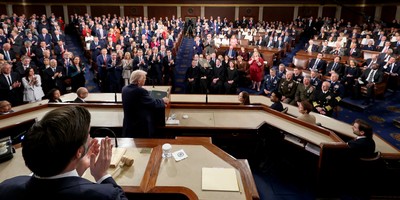In the summer of 2009, thousands of Iranians took to the streets to protest what was almost certainly a rigged presidential election. The protests were quickly dubbed the “Twitter Revolution,” because protestors were able to use the well-known social network to communicate with one another and with the world. TIME magazine said of Twitter at the time:
“What began as a toy for online flirtation is suddenly being put to much more serious uses. After the [2009] election in Iran, cries of protest from supporters of opposition candidate Mir-Hossein Mousavi arose in all possible media, but the loudest cries were heard in a medium that didn't even exist the last time Iran had an election.”
Eighteen months after the start of the Iranian uprising, millions of Egyptian protestors—many of whom communicated with one another through Facebook and other social media platforms—flooded Tahrir Square in downtown Cairo to demand the resignation of President Hosni Mubarak. After 18 days of protests, Mubarak abdicated, Egypt’s constitution was suspended and its parliament disbanded.
Egypt has gone through several leadership changes since then, and just last month sixteen died in protests marking the fourth anniversary of the revolution. But unlike similar turmoil in the past, the deaths have attracted worldwide attention, largely due to graphic images and video circulated on social media of a dying 32-year-old Shaimaa el-Sabbagh being carried from the scene.
For millions of people around the world—particularly the Millennial generation—social media has opened up the possibility that change really can happen, even in nations ruled by totalitarian regimes. It would be a mistake, however, to assume that such technology is somehow biased towards freedom and democracy. The Islamic State (ISIS/ISIL) is reported to have more than 45,000 Twitter accounts, which it has successfully used to spread its message of violent Islamic totalitarianism. In addition to hijacking popular hashtags to reach and recruit younger people all over the world, the group and its sympathizers have successfully hacked accounts of celebrities and other organizations, including the United States Central Command.
Recommended
Young people in the United States and the rest of the West have also discovered social media activism, for causes as profound and important as #Blacklivesmatter—referring to police brutality in the deaths of Michael Brown and Eric Garner—and as trivial as #breaktheinternet, in reference to nude photos of Kim Kardashian. For better or worse, everyone with a smartphone can now share with the world his or her thoughts on Ferguson, the Middle East or Justin Bieber.
Of course demanding to be heard is different from having something meaningful or helpful to say. Beyond self-aggrandizing pronouncements riddled with bad grammar and poor spelling, some “activism” can often deteriorate into outright bullying and harassment. Some also worry that, particularly in the West, social media activism gives young people a false sense of accomplishment with very little effort. As Laura Seay wrote in the Washington Post:
“Such forms of advocacy, particularly those related to social media, are often derisively referred to as ‘slacktivism’ or ‘armchair activism.’ These activities pose a minimal cost to participants; one click on Facebook or retweet on Twitter and the slacktivist can feel that he or she has helped to support the cause. Slacktivists don’t have to spend a Saturday doing hard labor to build a home or sacrifice a portion of their monthly entertainment budget to a cause. They don’t even have to move from behind the screens of their electronic devices.”
But many activists themselves report that social media is vital to organizing their followers and communicating their message to the world. Anti-police brutality activist DeRay McKesson talked to Noah Berlatsky of the Atlantic about the role of Twitter in the Ferguson protests:
The intensity with which they responded to protestors very early—we were able to document that and share it quickly with people in a way that we never could have without social media. We were able to tell our own stories. The history of blackness is also a history of erasure. Everybody has told the story of black people in struggle except black people. The black people in the struggle haven't had the means to tell the story historically.
The ability of almost all parties in a conflict to tell the world their side of the story is perhaps the most important contribution social media has made to humanity’s ongoing struggle for peace and justice. It’s not surprising that broadcasting many thoughts we might otherwise have kept private would display some of the best and worst in human nature. But there is no question that Facebook, Twitter and similar platforms have given a national and even worldwide voice to movements and individuals who would never have had one otherwise. And that is, for the most part, a good thing.























Join the conversation as a VIP Member